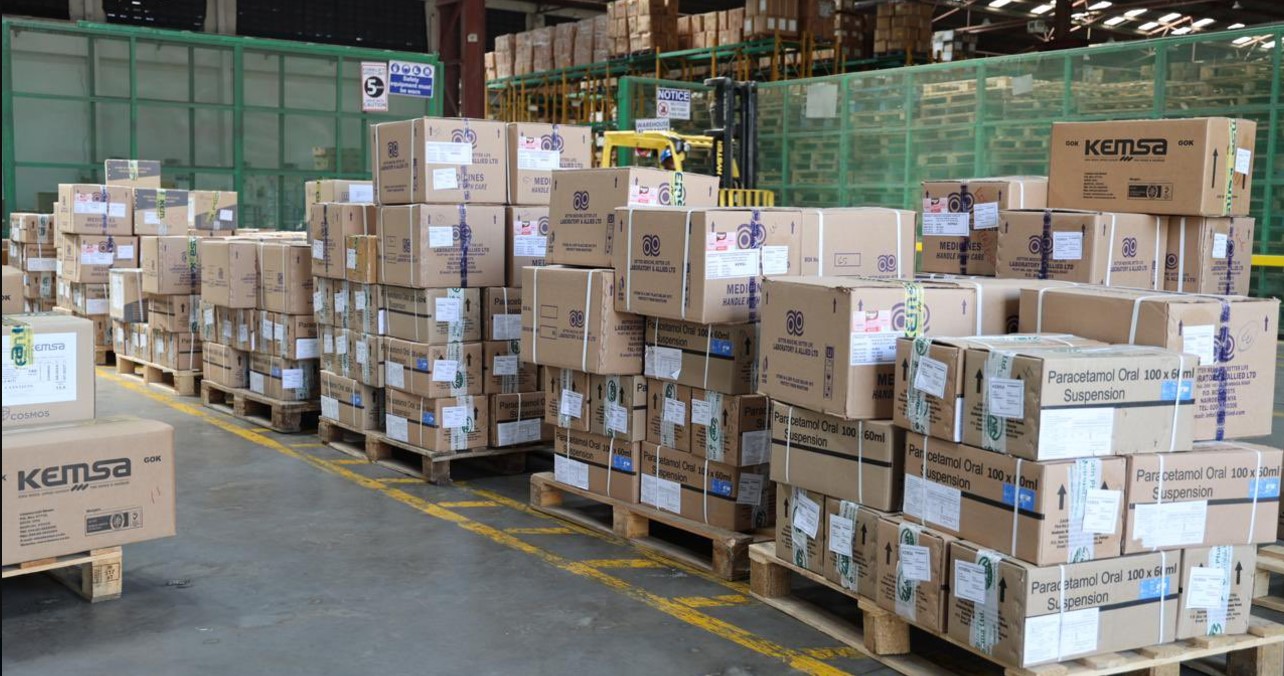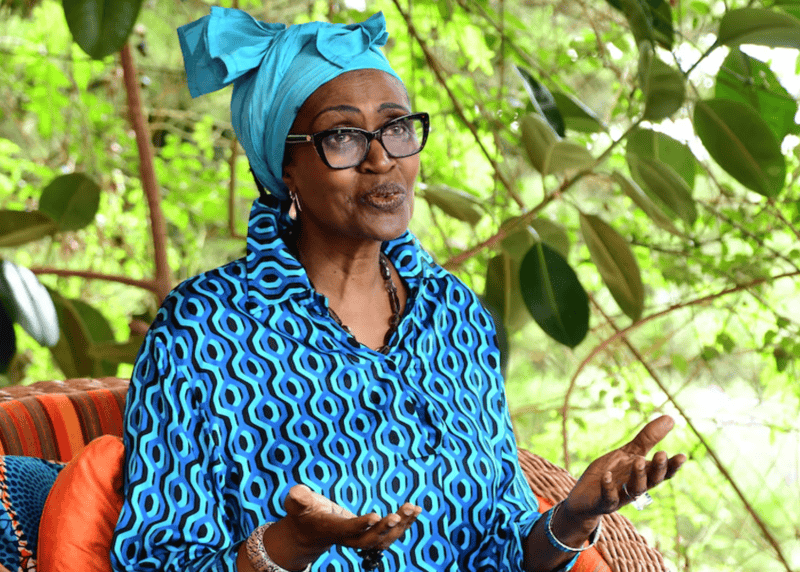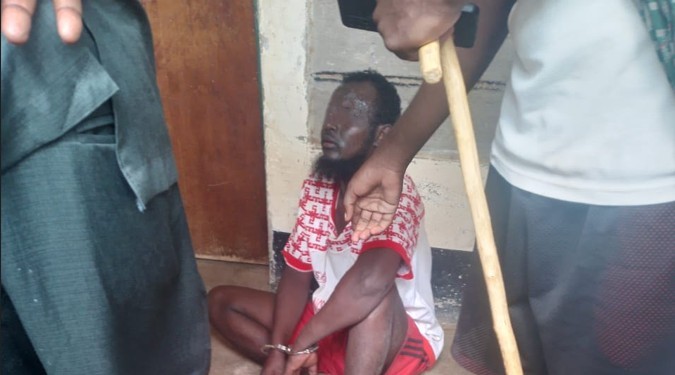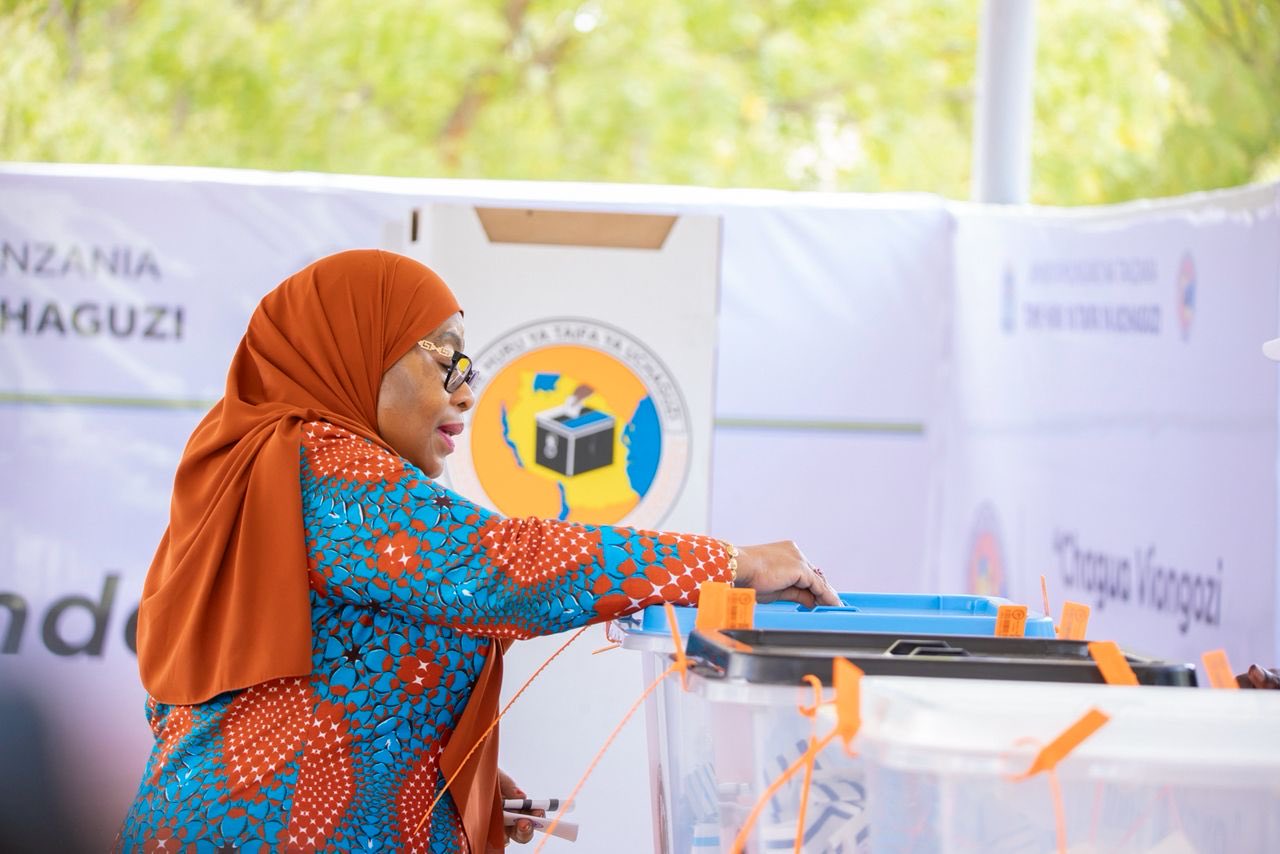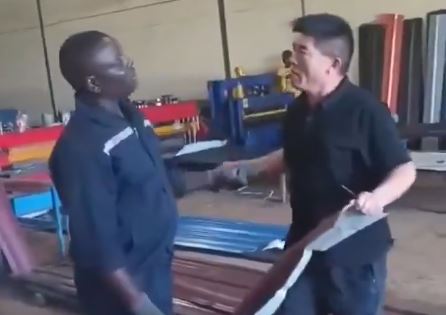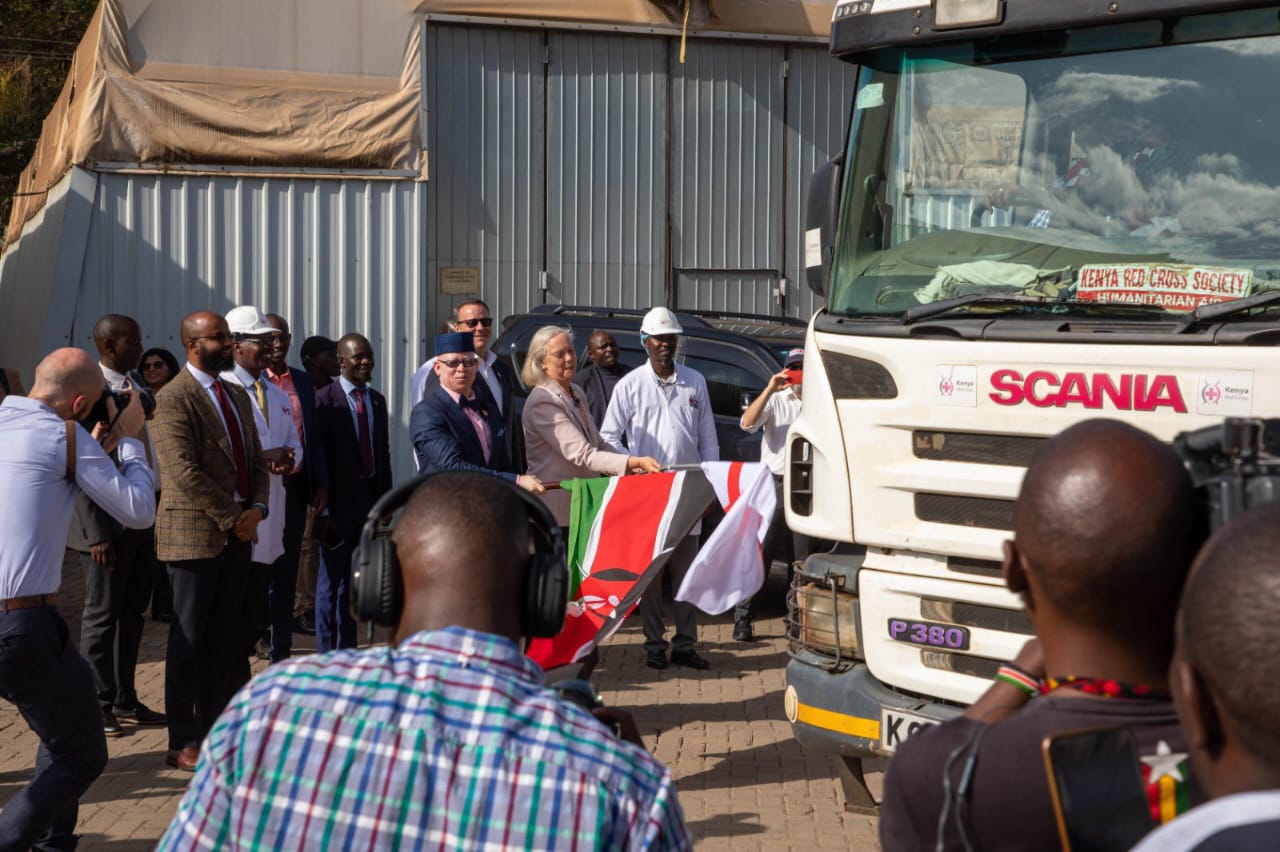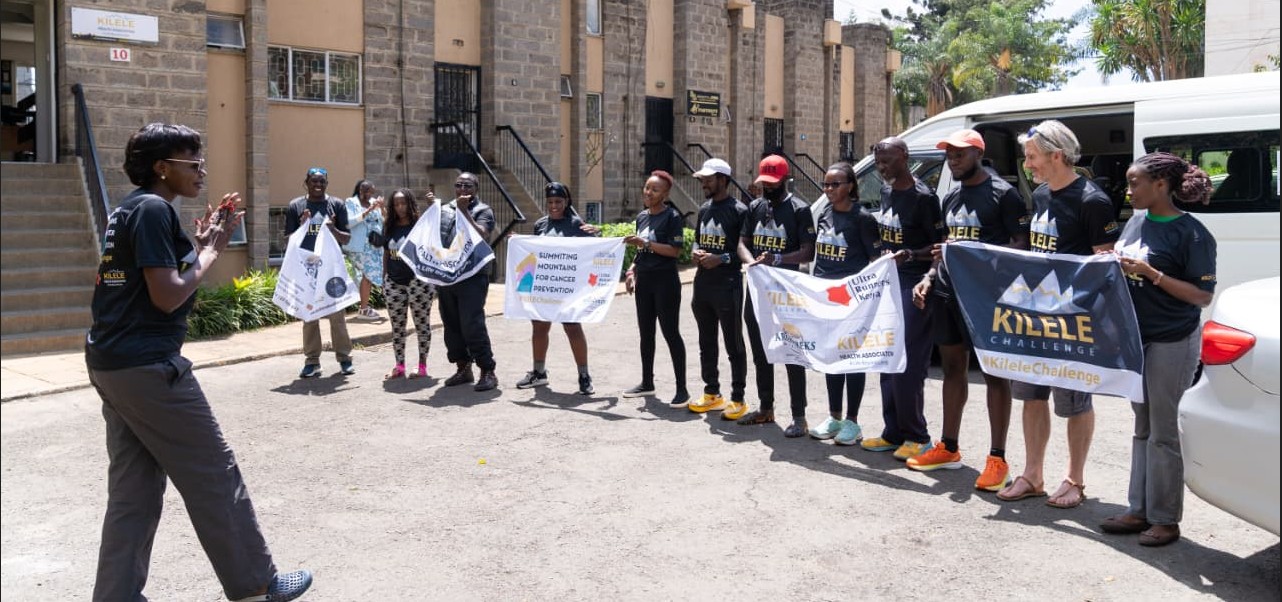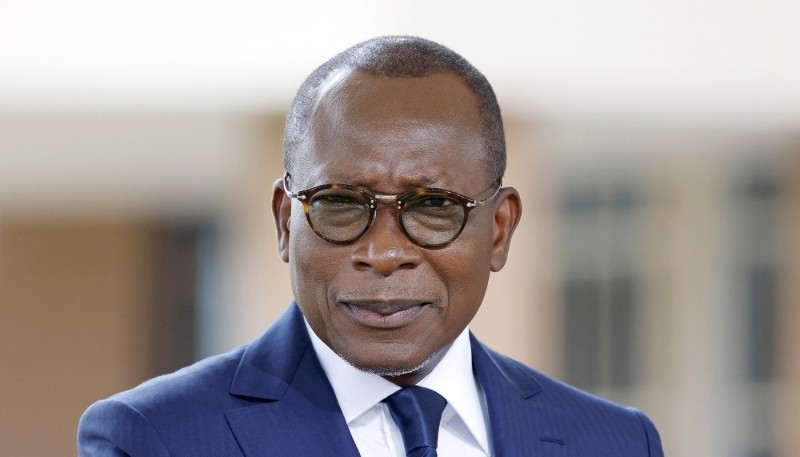How polio shattered former senator Harold Kipchumba's dream of joining the army
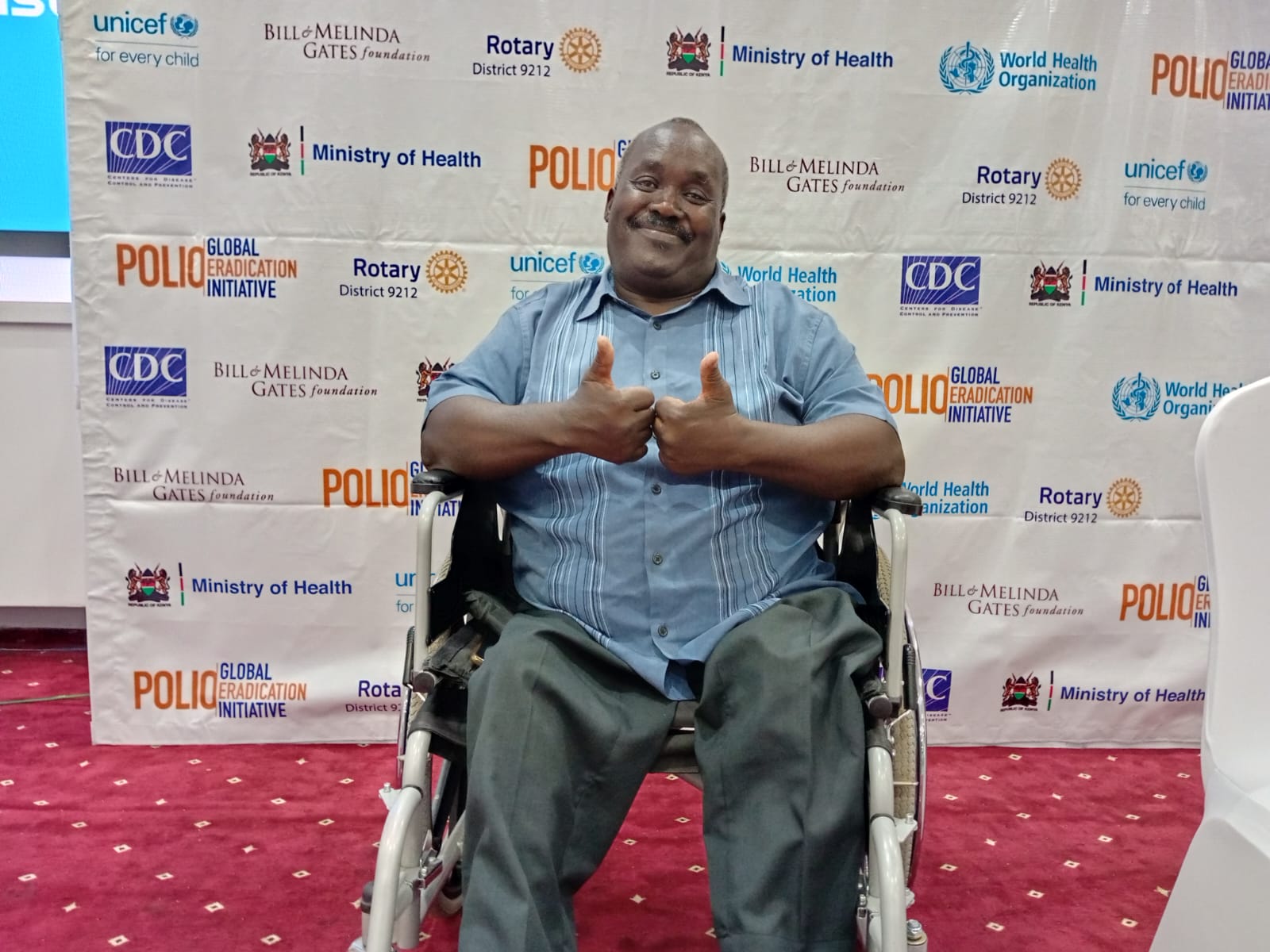
At 60, Harold reflects on how polio has drastically altered his life. He feels that while many of his peers can still enjoy the freedoms of youth, he is often reminded of his disability.
For many years, former Nominated Senator Harold Kipchumba has borne the burden of unfulfilled dreams. As a child, he longed to join the army, watching his classmates enlist with pride and advance through the ranks.
Each encounter with them brought a blend of admiration and heartbreak, a painful reminder of a dream that seemed perpetually out of reach. At just four years old, polio struck, irrevocably altering his life and reshaping his aspirations in ways he could never have anticipated.
More To Read
- Conflict, displacement fuelling measles outbreaks across the continent - Africa CDC
- Explainer: Wild vs vaccine-derived polio - why both threaten Kenya’s progress
- WHO says polio eradication still feasible despite Sh219 billion funding cuts
- Kenya launches 10-day vaccination drive to curb typhoid, measles outbreaks among children
- MoH says Kenya fully stocked on vaccines as Sh4.9 billion allocation secures future supply
- Over 300,000 children vaccinated against polio in Garissa County
Harold was once a healthy and vibrant child, brimming with energy and laughter. He loved nothing more than playing with his friends, racing after them, and revelling in the carefree joy of childhood.
But everything changed when, at the age of four, polio struck. His family, lacking crucial information about the disease, sought help from witch doctors and herbalists, desperately hoping for a cure.
“When you experience polio paralysis, it can feel like you suddenly become a burden to those around you. People often begin to stigmatise you, looking down on you as if you brought this upon yourself, and that is what I faced as a child," he told the Eastleigh Voice.
The lively boy who once chased after his friends was suddenly faced with limitations that seemed insurmountable. The laughter and playfulness that characterised his early years gave way to a difficult struggle to adjust to his new reality.
His parents were hopeful yet misinformed, and it wasn’t until they learnt that polio was untreatable that their world shattered.
Luckily for him, he met Good Samaritans who offered him support and encouragement.
“I started school late because I didn’t have crutches, but I was fortunate to attend a special school in Nyabondo. It was sponsored by a compassionate Catholic priest who saw my potential and decided to give me a chance.”
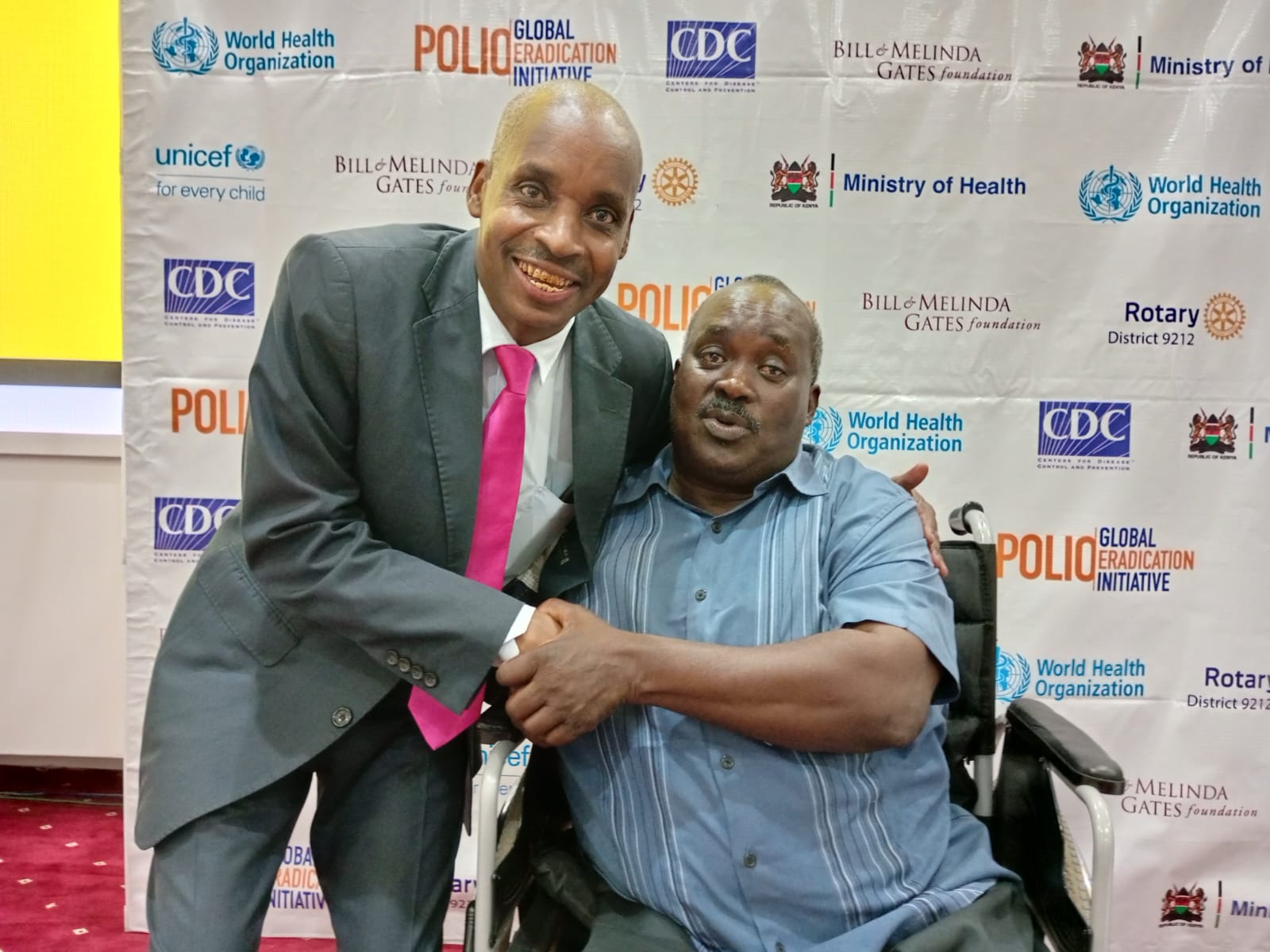 Former Nominated Senator Harold Kipchumba at a past event. (Photo: Charity Kilei)
Former Nominated Senator Harold Kipchumba at a past event. (Photo: Charity Kilei)Former Nominated Senator Harold Kipchumba at a past event. (Photo: Handout)
But even within those walls, he felt the sting of stigma. Stigmatised by both society and his family, he felt like an outsider, constantly reminded of his limitations and the burdens his condition placed on those around him.
“Polio robs you of the ability to fully engage with the world. As a child, I longed to participate in everyday activities like caring for goats, gathering firewood, or playing with other children, but I couldn't," he painfully recalled.
Despite having found love and started a family, a privilege many with disabilities don’t experience, he often feels the constraints of his condition.
Harold speaking with the Eastleigh Voice notes the pain he feels with a deep sense of loss about the simple moments he wishes he could share with his children. Activities like hiking, teaching them to ride bikes, or just enjoying swimming are often beyond his reach.
“As a father, it pains me when I can’t do the things that others take for granted; even in the workspaces, people still look down on me, which is why I’m determined that no child should ever have to face polio; it’s preventable through vaccination.”
At 60, Harold reflects on how polio has drastically altered his life. He feels that while many of his peers can still enjoy the freedoms of youth, he is often reminded of his disability.
“People don’t hesitate to point out my limitations,” he said, acknowledging the frustration it brings. It’s disheartening for him to encounter individuals who deny him opportunities simply because of his condition, whether in work or community involvement.
To cope with his unfulfilled aspirations, Harold has encouraged some relatives to join the army in his stead, finding solace in their achievements. In this way, he feels a connection to the dream he once cherished. Despite his challenges, he considers himself a blessing to his family.
He also emphasises to parents of children with disabilities the importance of not hiding them away, urging them to provide opportunities for education and growth.
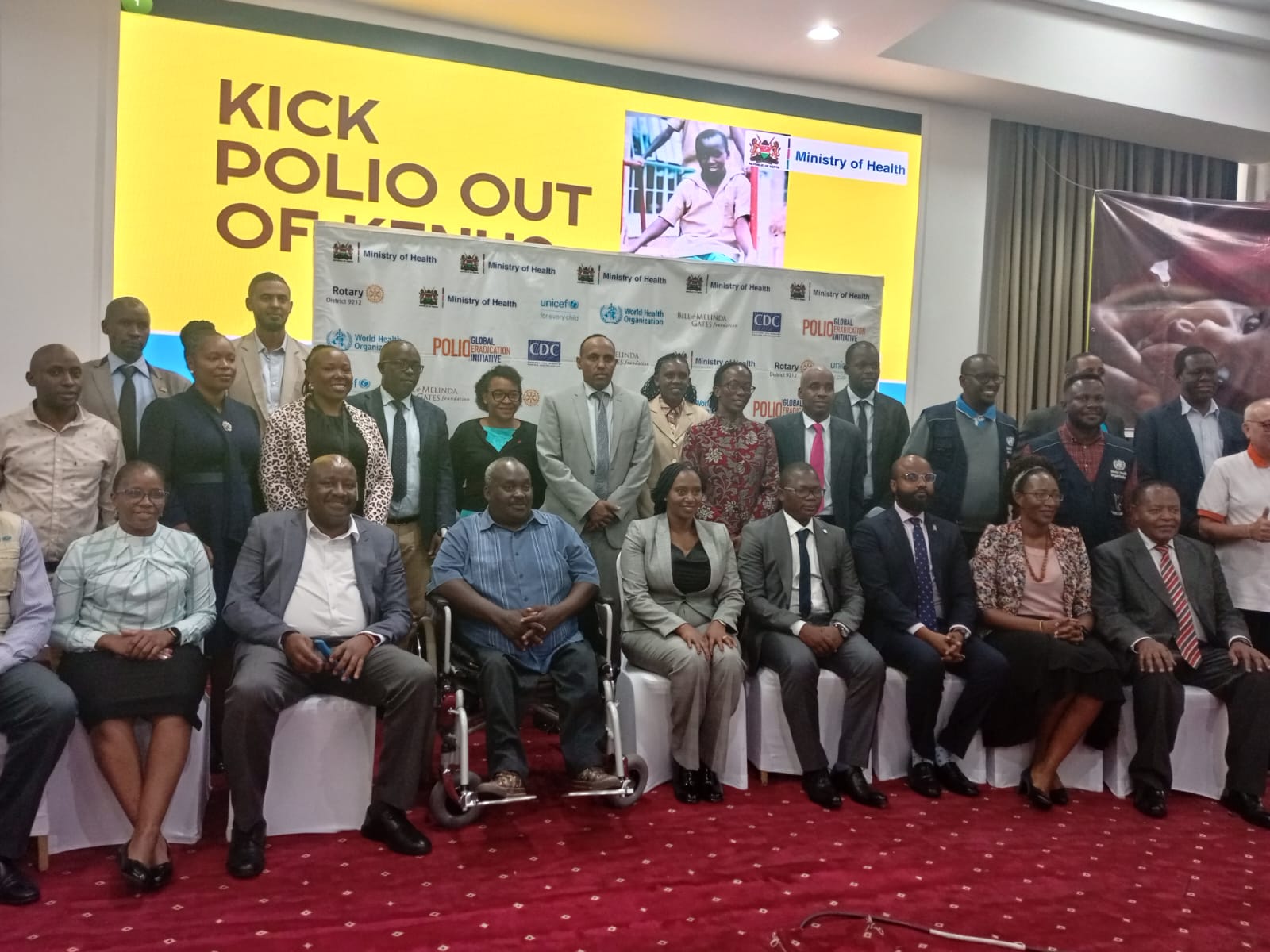 Former Nominated Senator Harold Kipchumba at a Kick Polio Out event.(Photo: Charity Kilei)
Former Nominated Senator Harold Kipchumba at a Kick Polio Out event.(Photo: Charity Kilei)Former Nominated Senator Harold Kipchumba at a Kick Polio Out event. (Photo: Handout)
Now, using his voice to advocate for polio prevention, Harold has established an organisation dedicated to creating opportunities for people with disabilities.
Through this organisation, he aims to provide resources and support, ensuring that others don’t face the same struggles he did.
“Every day, I work to amplify the message about vaccination.” He believes that with awareness and action, the community can join him in this vital mission, helping to prevent polio and creating a more inclusive world for everyone.
According to the World Health Organisation (WHO), polio is a highly infectious viral disease that attacks the nervous system and can cause total paralysis within hours.
It spreads primarily through the faecal-oral route and contaminated food or water. Initial symptoms include fever, fatigue, headache, vomiting, neck stiffness, and limb pain.
While most cases are mild, one in 200 can lead to irreversible paralysis, particularly in the legs, with a mortality rate of 5–10% among those paralysed due to respiratory failure.
Polio mainly affects children under five, but unvaccinated individuals of any age are at risk. There is no cure for polio; prevention through multiple doses of the polio vaccine is essential for lifelong protection.
Kenya remains at risk of a polio outbreak. On Monday, the Ministry of Health announced a five-day vaccination campaign aimed at protecting 3.84 million children under the age of 10.
To prevent the spread of the mutant poliovirus type 2, 2.02 million children under 10 and 1.82 million children under five will receive vaccinations starting Wednesday.
Health officials reported that a sewage sample testing positive for polio type 2 was found in Nairobi County during environmental surveillance, indicating that the virus has spread beyond its initial areas.
Top Stories Today
